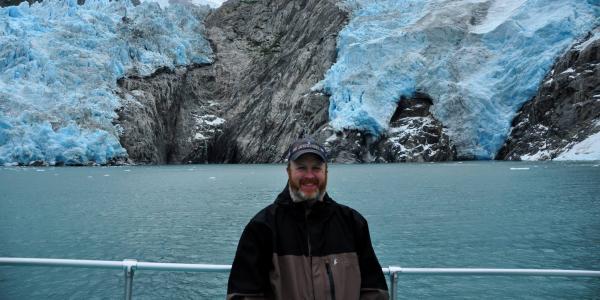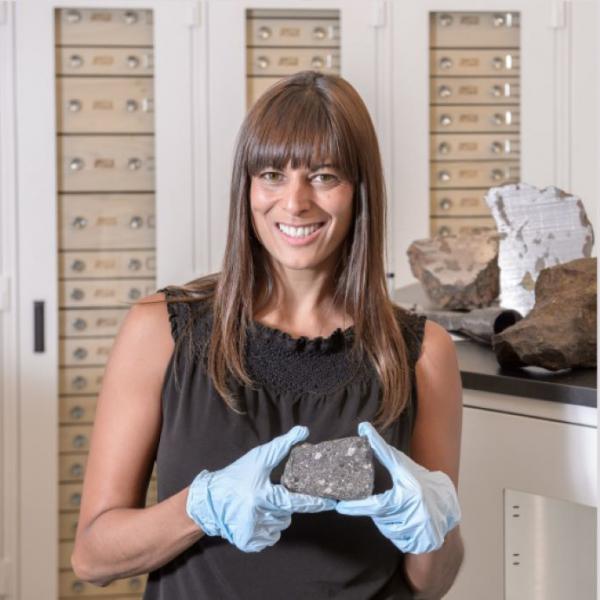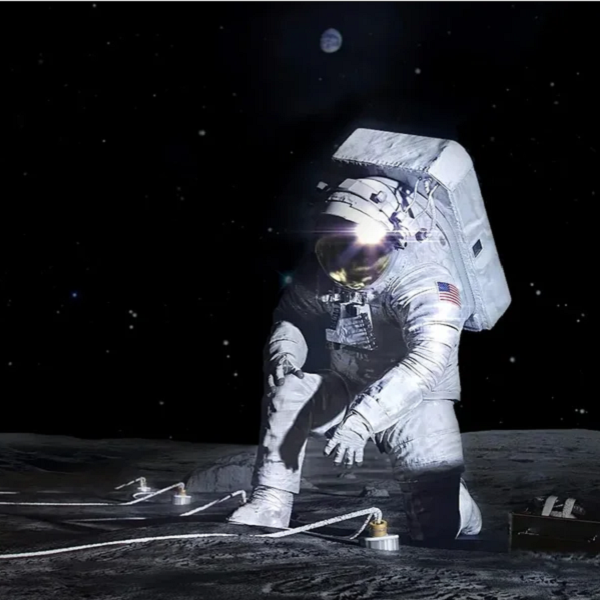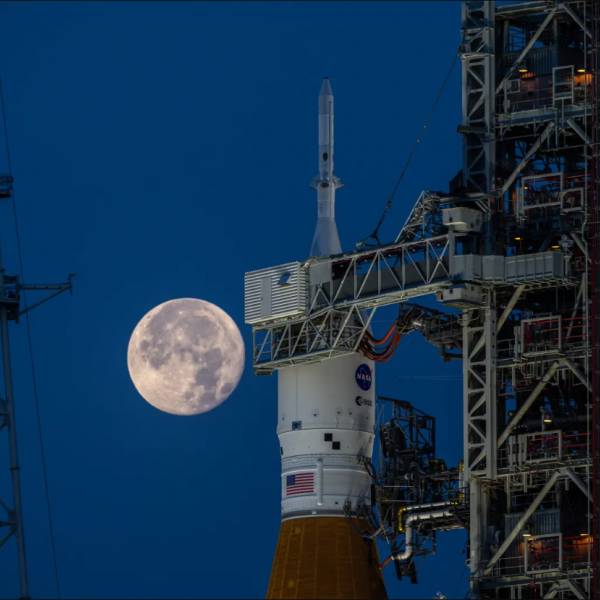Alumnus Ryan Zeigler, PhD 2004, now works as Apollo Sample Curator and Manager of the Astromaterials Acquisition and Curation Office.
Ryan Zeigler, PhD ’04, spends his days looking after rocks. Normally, rocks don’t require much care, but lunar samples are a different story entirely.
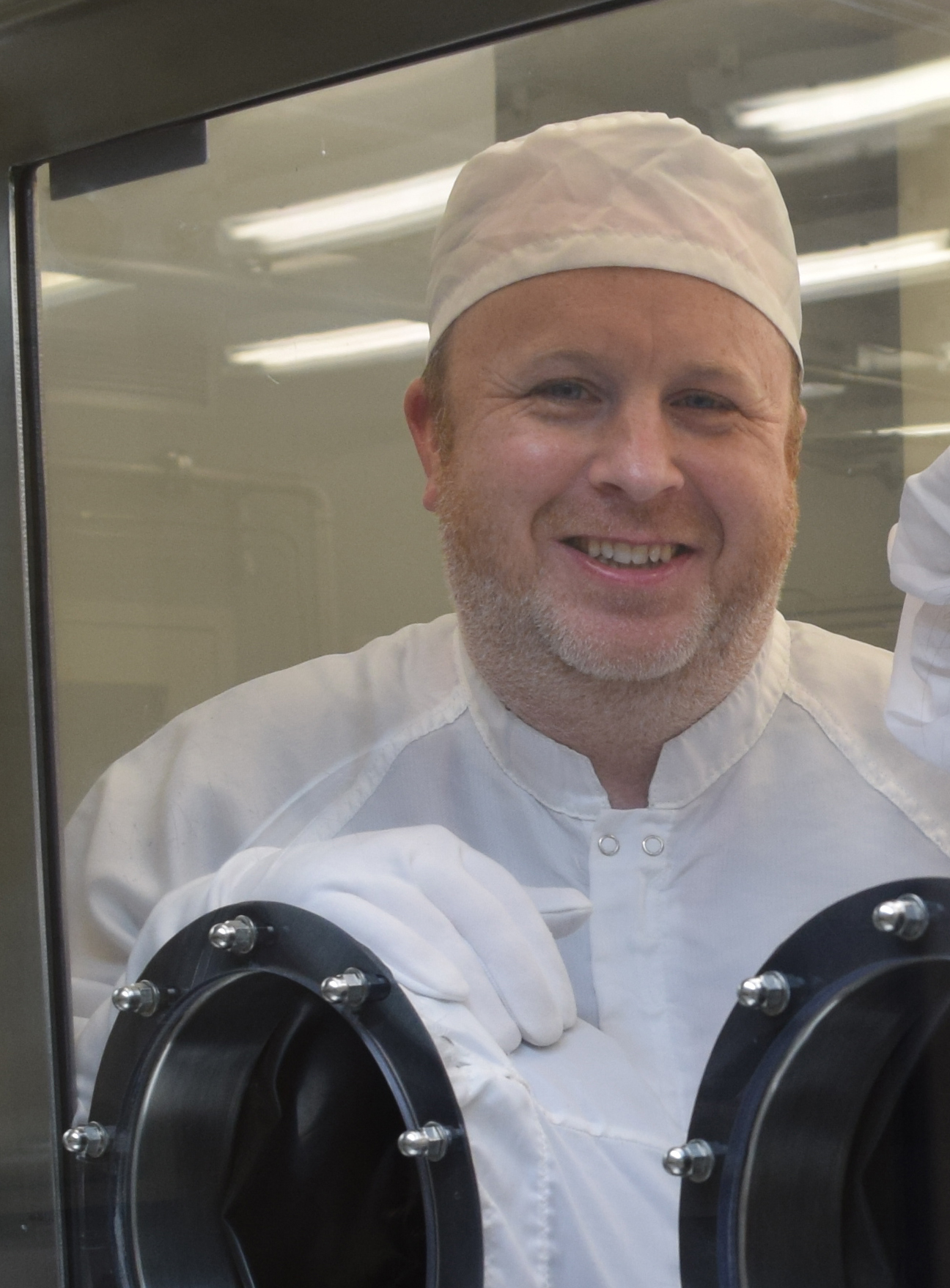
“Here at NASA I take care of Moon rocks. I’m protecting what astronauts and previous generations of scientists devoted much of their lives to bringing back. I view the lunar samples as a unique resource of the American people, a national treasure,” Zeigler said. “I’m just one part of a big team, but it really is an honor, knowing we’re protecting something that people are going to study for another 50 years or more.”
As NASA’s Apollo Sample Curator and Manager of the Astromaterials Acquisition and Curation Office at Johnson Space Center, Zeigler helps determine how this very limited resource will be used by scientists. “It’s a balancing act,” he said. “We don’t want to use too much of the sample, but we also have to make sure we’re using enough to get a good science return on that investment.”
On a day-to-day basis, Zeigler makes sure all the lab infrastructure is in good working order. “It’s equal parts exciting and terrifying. A bad day at work for my team could result in contaminated samples, if we have a water leak or something. We’re also responsible for the samples out on display and on loan to scientists all over the world,” said Zeigler, “so that can be nerve-wracking at times.”
Zeigler has extensive experience with lunar samples, dating back to his time as a graduate student at WashU working with Larry Haskin, Brad Jolliff, and Randy Korotev.
“By the end of my first year of graduate school, I had access—after hours, alone, in the middle of the night, whenever I wanted—to the Apollo samples I was studying and that my advisors were ultimately on the hook for. They trusted me with that, which was quite a responsibility for a 22-year-old,” Zeigler recalled. “That really gave me an appreciation for how important it was to be good stewards of the samples.”
With the training he received and the support of his advisors, who Zeigler joked had a full-time job keeping tabs on him, Zeigler thrived at WashU. “My three advisors, and everyone else in the department, gave me a sense of the scientific rigor that goes into research at this level. My advisors did a really good job of challenging me and helping me learn to scientifically investigate things, while still being supportive in those moments where I felt overwhelmed. They reminded me that it’s a marathon, not a sprint,” Zeigler said. “The department is an amazing academic environment, and I was incredibly lucky to have supportive faculty and lunar samples at the same time.”

